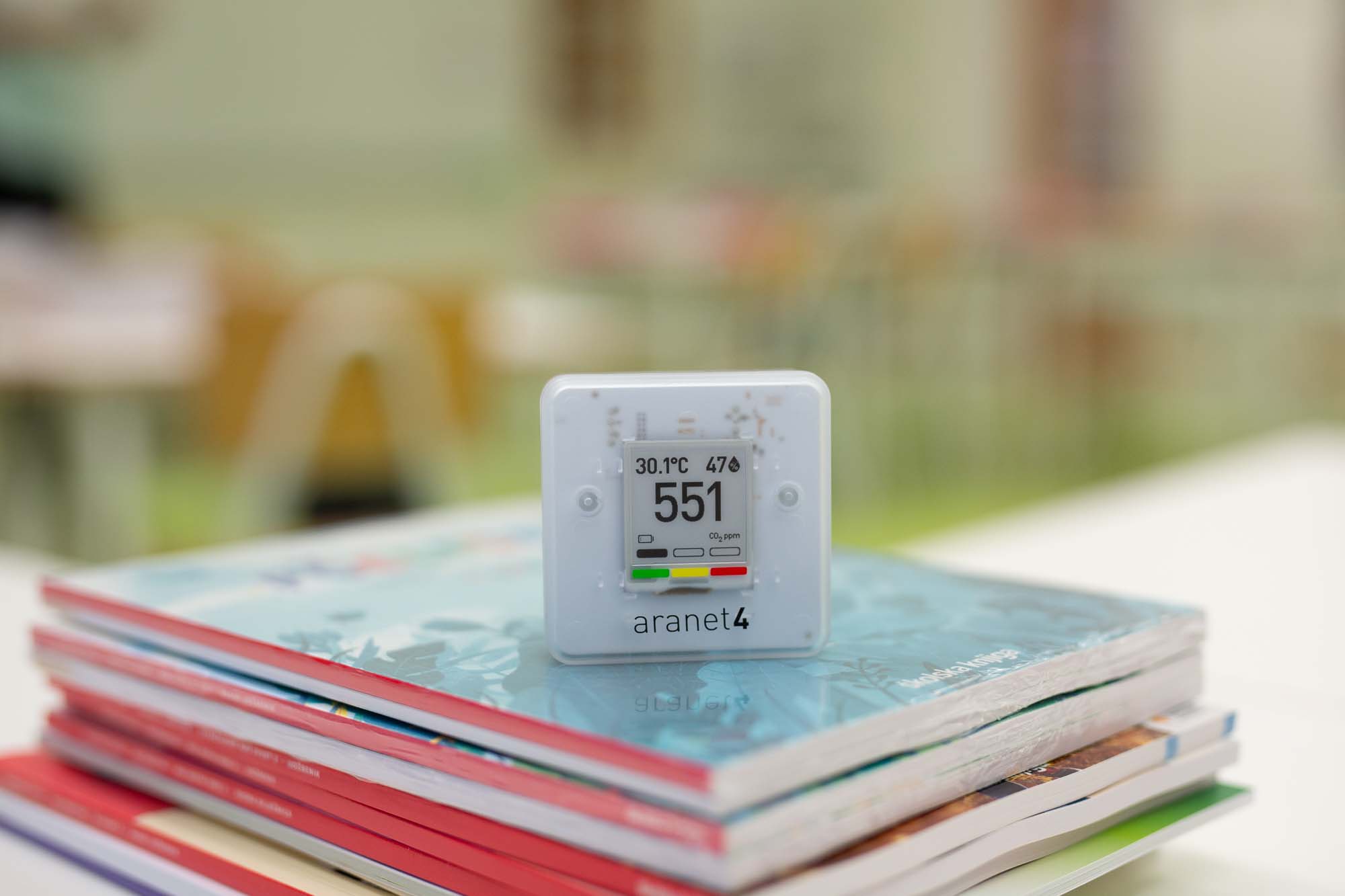- Following research that revealed high concentrations of carbon dioxide in Croatian classrooms, a pilot project titled “Guardians of Fresh Air” was launched at Kajzerica Elementary School in Zagreb at the start of the 2024/2025 school year.
- BOSQAR INVEST donated 30 specialized air quality monitoring devices to the school.
- Experts from the Croatian Meteorological and Hydrological Service (DHMZ) and the Public Health Institute “Dr. Andrija Štampar” held educational lectures for students on the importance of clean air.

Zagreb, Croatia, May 16, 2025 - During the Biodiversity Project Day at Kajzerica Elementary School, where BOSQAR INVEST (BOSQAR d.d. – ZSE: BSQR) launched its 'Guardians of Fresh Air' initiative last year to promote awareness of indoor air quality in schools, students took part in engaging lectures delivered by Dr. Ivana Ćosić and Valentina Jagić from the Air Quality Sector of DHMZ, along with Dr. Želimira Cvetković, Head of the Environmental Hygiene Department at the 'Dr. Andrija Štampar' Public Health Institute."
As the experts emphasized, introducing CO₂ monitoring systems and promoting awareness about the need for clean air helps schools become not only safer but also more stimulating learning environments: “Children who understand why it’s important to open a window will be more likely to do so on their own.”
“Air quality is categorized into two levels. First-category air is clean or slightly polluted, while second-category air shows elevated pollutant concentrations. In winter, the main source of pollution is particulate matter. Currently, as per the Air Protection Act (OG 127/19, 57/22, 136/24) and related regulations, measurements are taken for particles with aerodynamic diameters of 2.5 and 10 micrometers (PM2.5 and PM10). These concentrations increase during winter, primarily due to the use of solid fuel for heating in households and traffic, especially under calm weather conditions without wind or precipitation. Urban structure and terrain also play a role. Industry is a year-round source, and we must not ignore natural sources (fires, volcanoes, desert dust) and cross-border transport. Currently, air quality in Zagreb is satisfactory based on parameters such as PM2.5, PM10, nitrogen dioxide, and ozone. However, with warmer months approaching, we can expect higher levels of certain pollutants like tropospheric ozone,” said Dr. Ivana Ćosić, Head of the Inorganic Laboratory at DHMZ.
“Pollutant concentrations are measured at stations within the national air quality monitoring network, which has been modernized or newly built as part of the EU structural project ‘Expansion and Modernization of the National Air Quality Monitoring Network – AIRQ.’ Real-time data from all monitoring stations are available on Croatia’s Air Quality Portal,” added Valentina Jagić from DHMZ.
“Indoor air can be improved through regular ventilation, using natural cleaning products, avoiding smoking indoors, and growing houseplants that purify the air, such as aloe vera, philodendron, and peace lilies. It is recommended to have at least 2 to 3 plants per 30 m², as they can contribute to better air quality and overall comfort,” said Dr. Želimira Cvetković, dipl. ing., Head of the Environmental Hygiene Department at the NZJZ “Dr. Andrija Štampar.”
%2C%20Valentina%20Jagi%C4%87%20(DHMZ)%2C%20%C5%BDelimira%20Cvetkovi%C4%87%20(NZJZ%20Dr.%20Andrija%20%C5%A0tampar)%20(2).jpeg)
CO₂ Levels in Classrooms Up to Four Times Higher Than Recommended
“Elevated CO₂ levels reduce cognitive performance and pose health risks. Many countries already regulate indoor air quality in classrooms, setting limits at 1000 parts per million (ppm) and requiring a minimum fresh air supply of 30 cubic meters per hour per person. In a pilot study we conducted at one Zagreb school, CO₂ levels reached 4500 ppm - far above recommended limits and a clear health concern. CO₂ is also an indicator of the presence of other respiratory byproducts, including pathogens. This prompted us to install air quality monitoring devices in classrooms that detect excessive CO₂ levels and signal the need to ventilate. Or, as our slogan says: Attention, attention - open the window!” said Velimir Gašparović, the initiator of the “Fresh Air Guardians” project.
The devices, installed in classrooms across all eight grades, continuously monitor CO₂ levels and provide real-time feedback. A green light indicates good air quality, yellow means moderate, and red signals poor air quality.
A Healthy Environment for Every Child
“From the beginning, the project was recognized as valuable and necessary - first by the School Board and then by the City Office for Education. Everyone supported the initiative because it is clear that air quality directly affects the health, well-being, and academic success of our students. We are proud that our school is leading this initiative, setting a standard for healthier, more conscious school environments,” said Mario Bošković, Principal of Kajzerica Elementary School.
The “Guardians of Fresh Air” project aims not only to introduce technical improvements but also to foster a cultural shift in how we approach school environments, a change that seems to already be gaining momentum in Croatia.






